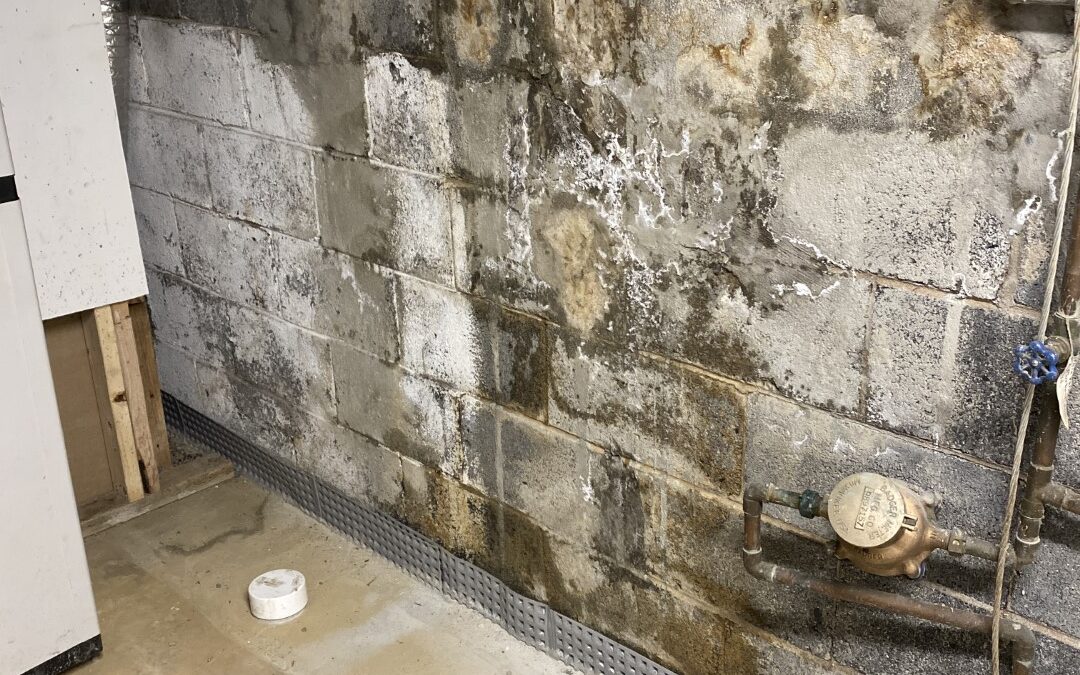 When you maintain your home, one often neglected aspect is undoubtedly the basement’s health. A wet or water-damaged basement can cause structural damage, the development of mold, and other eventual problems that may affect the value and safety of the home. Recognizing the signs of basement leakage along with determining if your basement requires waterproofing becomes key steps for you to protect your property. Below, we have provided you with the top 10 indications that you must consider in terms of hiring a professional basement waterproofing service.
When you maintain your home, one often neglected aspect is undoubtedly the basement’s health. A wet or water-damaged basement can cause structural damage, the development of mold, and other eventual problems that may affect the value and safety of the home. Recognizing the signs of basement leakage along with determining if your basement requires waterproofing becomes key steps for you to protect your property. Below, we have provided you with the top 10 indications that you must consider in terms of hiring a professional basement waterproofing service.
How to Tell If Your Basement Needs Waterproofing
- Visible Water Stains:
Brown and yellow stains on the basement wall or floor are an obvious sign that moisture is creating an entry. Even if these stains are not wet at the moment, their very existence is an indication that a history of water intrusion has already transpired, which is likely to worsen without proper waterproofing. - Musty Smells and Mould Growth:
A persistent musty smell is an indication of an underlying moisture problem. Mould thrives in damp conditions, which can make air quality poor and can be hazardous to health. If you witness blackish or green patches on the walls, cabinet, or valuables, time to take action. - Peeling or Bubbling Paint:
Whenever the paint on the basement walls starts peeling, bubbling, or blistering, that is a sign that moisture is trapped underneath. This problem can, without careful attention to the concerning issue, give rise to larger ones. - Efflorescence on Walls:
A white chalky substance on basement walls is a frequent indicator of water penetration. Efflorescence happens when groundwater escapes through masonry, leaving mineral deposits behind. - Warped or Rotted Wooden Structures:
Wooden beams, wooden framing, or even storage racks can warp, rot, or decay when moist. Should the wood warp or rot, this is a sure indicator that the basement conditions have become moist and now need waterproofing. - Foundation Cracks and Settling:
These cracks in the walls or floor of your home’s foundation are normally both a cause and effect for moisture in the basement. As the water seeps in, it tends to weaken the structure of the foundation, causing great disaster in a state of affairs where some corner of your house does decide to cave in. The professional waterproofing service can check these cracks from happening again, alongside taking the initiative to stabilize your home. - Standing Water or Puddles:
This is one of the most apparent signs of basement leaks. Even a few small puddles on the floor should indicate water entering from somewhere, either through cracks, window wells, or inadequate exterior drainage. Regular waterproofing will provide a drier and safer environment. - Rust on Metal Fixtures:
Metal fixtures, appliances, or supporting beams in your basement may develop rust when exposed to high humidity levels or direct water infiltration. These factors do not in the least add to their beauty, but it can certainly undermine their structural stability. - Condensation on Windows and Pipes:
Excessive condensation on windows, pipes, or any other surface shows high humidity levels in your basement. This may not be a problem; however, a timely waterproofing process should be applied to humidity by introducing a circulation route for air and sealing out moisture from outside. - Increased Activity of Pests:
First, damp is a great place for insects such as termites and carpenter to increase activity in your basement. If the number of pests seems to have increased lately, it could be due to the moisture content that waterproofing can solve!
Protecting Your Home Against Basement Leakage
The pros of waterproofing a basement would be providing protection against the main problems mentioned above. A right waterproofing plan may include:
- Interior Drainage Systems:
These systems take water away from your basement walls and floor and ultimately redirect it to either a sump pump or drain lines. - Exterior Waterproofing:
Waterproof membranes, proper grading, and proper gutter and downspouts keep water from hitting your foundation. - Foundation Repair:
Ensuring that cracks in the foundation or structural imbalances are addressed means that moisture will not have such an easy entrance into your basement. - Dehumidification and ventilation:
Reducing humidity and increasing air movement will reduce the chances of condensation and the growth of mold.
Knowing these signs and coping with the professional waterproofing of the basement allow one to maintain the structure of the house and indoor air quality. If you match any of these signs or are just uncertain how to tell if your basement needs waterproofing, be sure to call a reputable waterproofing company. In any case, you assure it becomes a safe, dry, and comfortable basement for years to come.


Recent Comments